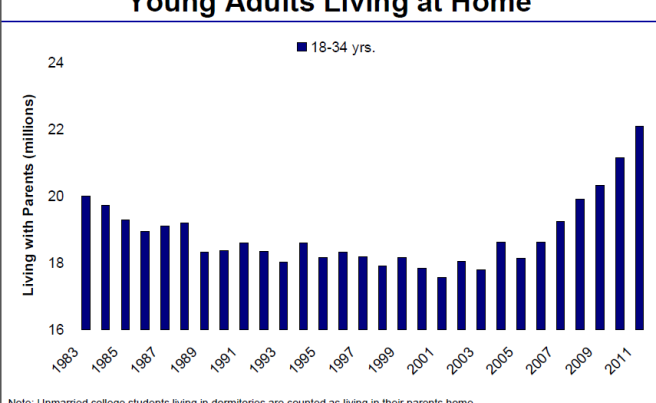高3東京外国語大学 Listening and Writing Practice – Young Adults Living at Home

1. Summarize the passage using the notes below.
Title: Young American Adults Living at Home
- Traditionally young adults didn’t want to live with parents, now things have changed.
- Why do young people choose to live at home?
– Delaying marriage and staying single
– Increase house and rent prices
– The cost of a university education
- Maybe they WANT to live at home
– Cultural changes
– Helicopter parents
– Mutually beneficial
With reference to your summary, write a 200 word essay on the following topic.
What are the positive and negative aspects of young adults moving back to their parents’ house? Would you consider doing moving back home having completed your university education? Why/Why not?
Script
In America, moving back in with mom and dad after graduating from university has traditionally been a difficult choice for young adults. Going back home is seen as a last resort for many, but that culture might be changing, according to new data. It is now becoming more and more common for young adults to actually choose to live with their parents.
Despite decreases in the unemployment rate and increases in full-time work and wages for young adults, the percentage of young adults living with family continues to increase. Adults under 34 years old are less likely to live on their own now than they were during the recession years in 2008-2010. During the first months of 2015, 67 percent of millennials lived independently. The decrease in independent living applies to college-educated adults as well as those without a college degree. Men are more likely to live at home than women.
So, why Are More Adults Living at Home?
One factor could be declining rates and postponing of marriage. Married adults are, of course, more likely to live on their own – 75 percent of young adults living with their parents were single and never married, while only 12 percent were married. Among those living apart from their parents, 46 percent were married and 35 percent were unmarried.
A very significant reason is the increase in home and rent prices, without an equal increase in wages. This makes living on your own less affordable than it used to be. Especially since millennials are more likely to live in cities where the home and rent prices are more expensive. In 2013, nearly half of renters aged 25-34 were paying 30 percent or more of their incomes in rent — the line considered by economists to be too much.
Meanwhile, the continual rise of college tuition means more millennials have students loans that impact their ability to save for buying a home. When young adults do buy a home, many rely on their parents for help with the downpayment, closing costs and other expenses. All of this has contributed to very low homeownership rates, already hurting after the recession. Rates of home ownership are now at their lowest levels since 1967, with experts expecting even more drops.
Cultural changes could also play a role. Many people in this generation have been raised by helicopter parents. They have been cared for and looked after by parents after graduating from junior high school and even after going to university. Maybe they are just more comfortable living with their parents and delaying complete independence. While some countries have the American tradition of young adults living independently, in others, most young adults live with their parents, some for life. In 2011, 79 percent of Italian young adults lived with their parents. Is it possible that this new paradigm could be seen as mutually beneficial for both parents and their children? The parents need not suffer the loss of their children moving away; and the young adults can live comfortable, physically, emotionally and financially.







Comments are closed